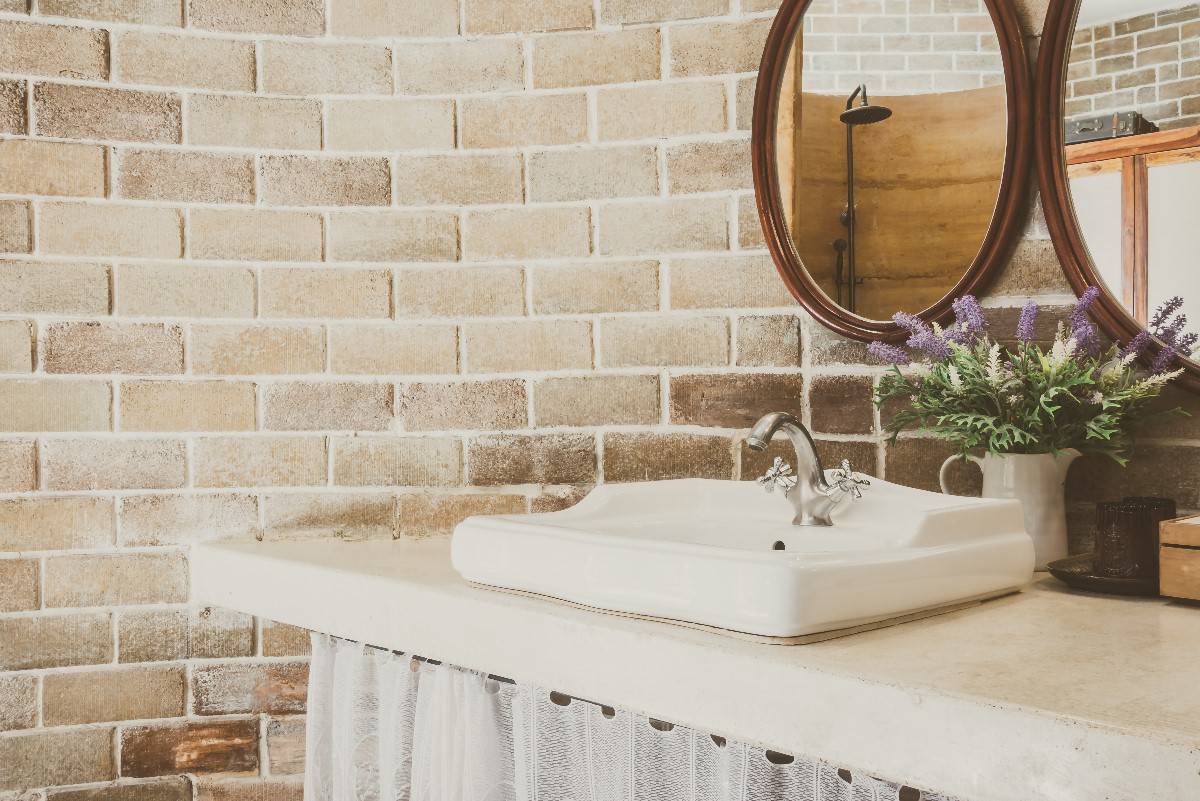
Conglomerate. Sounds strange? Find out what it actually is, where it can be used and why it is a good alternative to stone
Conglomerate is an artificial industrial product made of natural and recycled stone and various additives. It is also known as conglomerate
The difference between conglomerate and other loose rocks is that conglomerate is bonded by a binder. The binder is the glue that binds the individual mineral grains together. Conglomerate can be used inside, and after impregnation also outside. It is perfect for finishing construction
Its production begins with the appropriate selection of stone. Ceramics and fragments of glass and mirrors are often added. Everything is joined by means of epoxy resin, concrete or other mixtures. Then the whole thing is poured into a special mold to form a rock block. Finally the conglomerate is cut to the desired size.
Conglomerate can be used as a kitchen or bathroom countertop. It has a smooth, non-porous surface, is easy to remove dirt from it and is resistant to high temperatures. You can safely prepare meals for family and friends on it and you do not have to worry that it will quickly deteriorate due to moisture in the bathroom
Another application of conglomerate is its use during the production of window sills. They are especially recommended for the interior of buildings. Window sills from conglomerate look chic and original.
The usefulness of this material is even greater – there is the possibility of making it from the stairs and the floor. In their case, a huge role is played by strength, and this also copes conglomerate. Design depends only on you. You can bet on classic or modern. Interestingly, it is also used to create exterior elevations
It is a conglomeration of different rock elements. In this mixture you can find sand, crushed rocks and sometimes even whole rocks.
They are formed from the combination of fine stone material, such as granite, marble or quartz with polyester resin. The first type – granite conglomerate, is characterized by high hardness, easy to keep clean, is resistant to scratches and moisture. Unfortunately, it does not absorb odors well. Recommended for use in bathrooms, when installing stairs and floors.
Another type – marble conglomerate is softer and more susceptible to acids and scratches than granite-based products. It requires appropriate treatment, including special impregnation. It is the most demanding, intended mainly for the manufacture of window sills.
The last option presented is quartz conglomerate. It enjoys the greatest popularity, is by far the most widely used. The most resistant to problematic conditions. It is suitable for use in kitchens, bathrooms, on floors, stairs and facades.
>> What is the difference between primer and undercoat?
Compared to other stone countertops, they weigh up to 20% less in total weight. The price of this material for 1 m2 is lower than the cost of stone. Conglomerate is a material that well impregnated, practically does not absorb water.
Another difference between it and stone is the temperature. Rocks are cold and unpleasant, but conglomerate takes the ambient temperature. In addition, countertops made of conglomerate are joined seamlessly with other kitchen or bathroom fixtures. This gives you a greater sense of aesthetics. Speaking of appearance, you have more patterns and colors available. This is all because when producing conglomerate, it is possible to use dyes
As you can see, this material has a whole list of strengths. Does this mean that everyone planning to renovate or build a house will be queuing up for it right away?
Conglomerate, like everything, also has disadvantages. Conglomerate is not resistant to high temperatures. Of course, one type is more resistant to heat, and the other less, but compared to pure granite or marble you can’t even for a split second put a hot pot or even a cup with tea on it. Immediately, marks may appear, and after some time even deformation of the texture
If you are aware of this and plan to use hot pads, then you can confidently use conglomerate in your kitchen. However, if you know that in a hurry you may forget about it, think twice about buying the material.